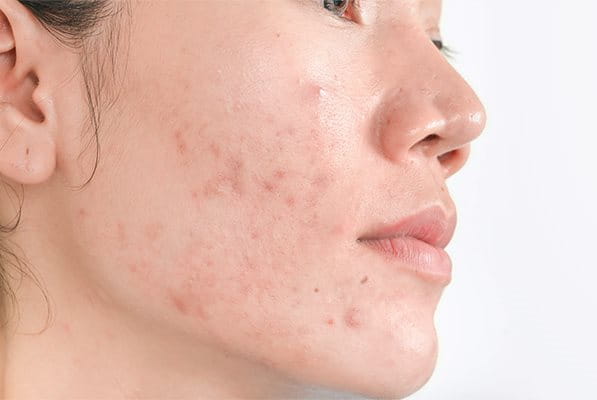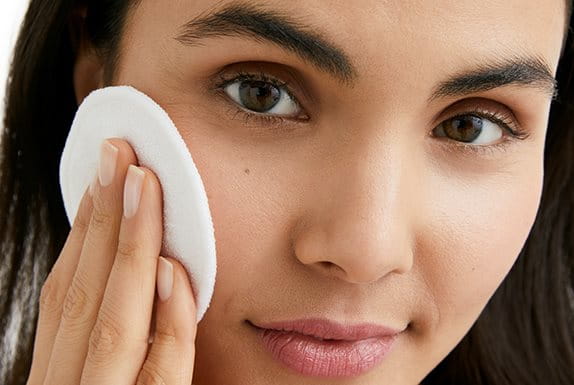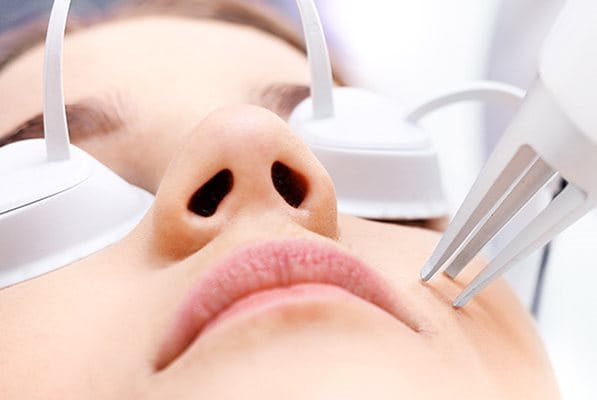As its name suggests, post-inflammatory hyperpigmentation occurs following skin injury or inflammation when skin is left darkened and discoloured after the wound has healed. This article looks at how post-inflammatory pigmentation affects skin’s appearance and what causes it. We also identify steps you can take to help reduce the appearance of dark patches on your skin.
Post-inflammatory hyperpigmentation (also known as PIH and hyperpigmentation caused by inflammation) is a type of hyperpigmentation that can affect the face and body. It appears as flat spots of discolouration. These range in colour from pink to red, brown or black, depending on skin tone and the depth of discolouration.
Men and women are equally susceptible, and all skin types can get post-inflammatory hyperpigmentation although it is more prevalent in darker tones of skin. In fact, PIH is one of the most common reasons why people with darker skins seek the advice of a dermatologist.1
The root cause of PIH is increased melanin production. Melanin is the pigment that defines the colour of a person’s skin and the increase in melanin is triggered by the way skin heals after inflammation or injury.
1 Post-inflammatory hyperpigmentation: a review of the epidemiology, clinical features, and treatment options in skin of colour. E.C. Davis and V.D. Callender. J Clin Aesthet Dermatol. 2010 Jul; 3(7): 20-31
PIH often affects people with acne and it can sometimes be triggered by skin treatments such as dermabrasion, chemical peels and laser therapy.
An injury, rash or blemish causes skin to become inflamed. This inflammation triggers melanocytes - the melanin-producing cells – to release excessive melanosomes (pigment granules). The excessive pigment granules darken and discolour the formerly wounded area, remaining there long after the initial wound has recovered.
The more inflammation there is, the more obvious the area of discolouration will be both in terms of size and colour. And, in cases where PIH is caused by acne, picking pimples can worsen the condition.
Whilst not the cause of PIH, the sun can aggravate symptoms, darkening the affected patches and prolonging the time it can take for them to fade. The sun is closely associated with other forms of hyperpigmentation such as age spots (also known as sun spots) and melasma.
Attention
Post-inflammatory hyperpigmentation is harmless but melanoma can be life-threatening. If you have any concerns about your pigment spots – if they change shape, size and colour or if they become itchy and start to bleed – it’s important that you consult your doctor.
If your skin is injured or blemish-prone, or if you suffer from skin conditions such as Atopic Dermatitis or Psoriasis, it’s important that you take care of your skin in order to reduce the chances of post-inflammatory hyperpigmentation.
Appropriate medication and/or a regular skincare routine using products that have been specially formulated to address your skin’s needs will help:
- Blemish-prone skin: read what can I do to help reduce blemishes and care for my skin? and find out more about the Eucerin DermoPurifyer range.
- Atopic skin: read how to calm and care for adult atopic skin and find out more about the Eucerin AtoControl range.
- Skin undergoing dermatological treatments: read what’s the best way to care for my skin after laser treatment? and/or what are chemical peels and how do they work? and discover Eucerin Aquaphor Soothing Skin Balm.
- Skin affected by minor burns: read what’s the best way to care for minor burns?

A sensible attitude to sun protection will also help to prevent or reduce the severity of post-inflammatory hyperpigmentation:
- Limit the time you spend in the sun
- Keep out of the sun during its most intense hours
- Wear protective clothing and sun-hats whenever possible
- Apply a sun protection product that offers the level of protection your skin needs and that is proven to be suitable for your skin type and/or condition.
Eucerin’s superior sun protection range includes face and body products that are suitable for blemish-prone skin, atopic skin and skin that has recently undergone dermatological treatments.
Post-inflammatory hyperpigmentation does not cause scarring and, even with no treatment, it will improve over time. Recovery rates vary from person to person: the timing depends on the difference in skin tone between the natural skin tone and the darkened patches – the more significant the difference, the longer it will take for the tones to rebalance.
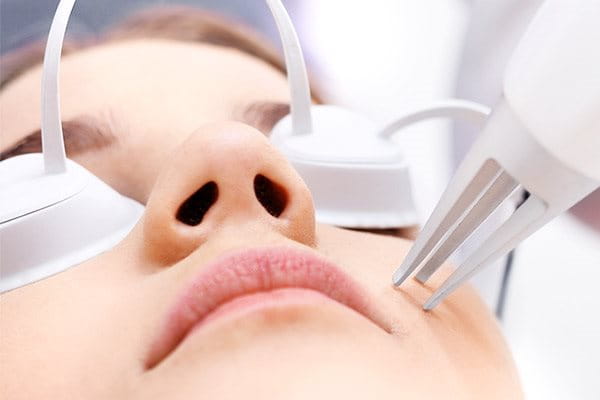
- Chemical peels involve applying a chemical solution (such as an AHA) to exfoliate skin (remove dead skin cells), stimulate the growth of new skin cells and reveal new skin.
- Laser therapy has a similar effect but tends to be more precise as the dermatologist has more control over the intensity of the treatment. Laser treatments involve ‘zapping’ the affected areas with high-energy light. The mildest treatments work on the skin’s epidermis (surface layer), while more intense treatments can penetrate the deepest layers of the skin. Find out more in Laser therapy: how should I care for my skin after treatment?
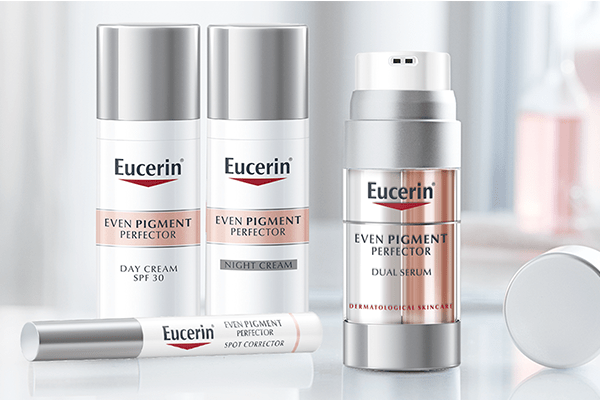
Dermatologists may also prescribe and/or use hydroquinone which is still regarded as the most effective topical agent for reducing hyperpigmentation. It can, however, only be used for limited periods of time because, like other forms of chemical peel and laser treatment, it can irritate skin and actually cause post-inflammatory hyperpigmentation, especially in people with darker skin.
Dermo-cosmetic skincare products can be used daily to help extend the results of dermatological treatments.
The Eucerin Even Pigment Perfector range contains Thiamidol, an effective and patented ingredient that acts at the root cause of hyperpigmentation by reducing melanin production. It has been clinically and dermatologically proven to reduce dark spots and prevent their re-appearance.




